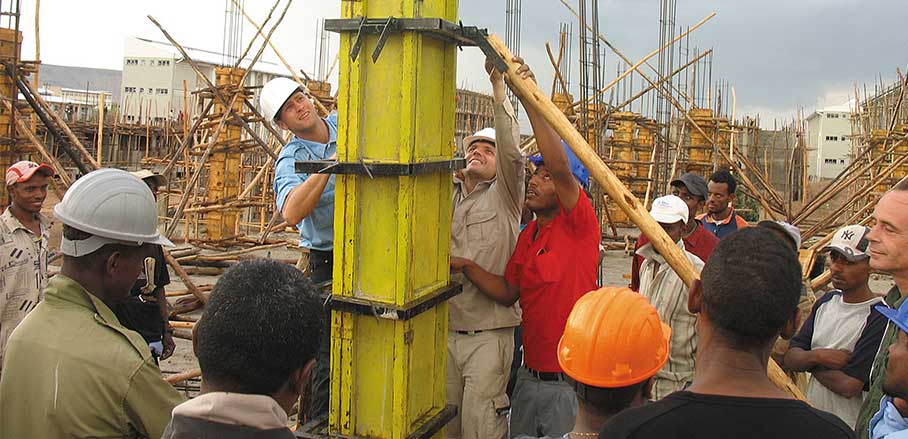Good partnerships – An interview with Brigitte Riegelbauer, mayor’s office in the city of Bamberg
by Imme Scheit
Town twinnings play an important role when it comes to mutual understanding and learning processes. In an interview with Imme Scheit, head of administration and deputy chief officer of the mayor’s office in the city of Bamberg Brigitte Riegelbauer explains how these partnerships can be successfully implemented.
How come Bamberg is especially active when it comes to supporting town winnings?
Bamberg has always been a very open-minded city, which becomes evident when looking at its six town partnerships and friendships all over the world.
In the past as well as today, these partnerships make an important contribution on the communal level when it comes to securing peace and international understanding, and will continue to do so in the future. Above all, the exchange of opinions and experiences helps to see beyond ones own nose and enhances mutual understanding. Giving advice and supporting each other in similar endeavours and with similar problems fills the partnerships with life and makes them more dynamic.
In your view, what is the greatest challenge when it comes to working with your Morrocan partner city?
The biggest challenge is finding the right actors for the upcoming projects. Choosing the right people plays a vital role in all working relationships and decides over success or failure of the cooperation. This means that there has to be a certain intercultural competence and expertise, as well as professionalism on both sides. If this is given, both partners can work together on eye level and profit from the cooperation.
Can the current high numbers of refugees in Germany be a chance for a stronger engagement of German municipalities, as they arguably make it easier for the municipalities to convince their citizens of the benefits of such an engagement?
The current high numbers of refugees in Germany make it clear that fighting the causes of migration is one of the big challenges we are presently facing on an international, national and municipal level. This is probably one reason why many citizens increasingly engage with the situation in the refugees’ countries of origin.
However, it is hard to tell how this influences citizens’ approval for a stronger engagement of German municipalities. In any case, the large amount of volunteer work in the different areas of refugee support clearly shows the citizens’ willingness to help.
